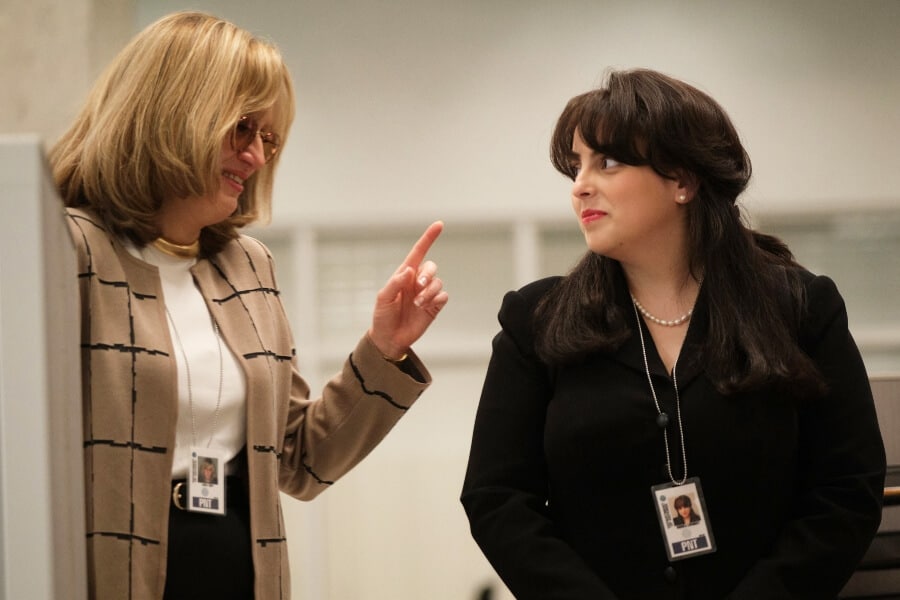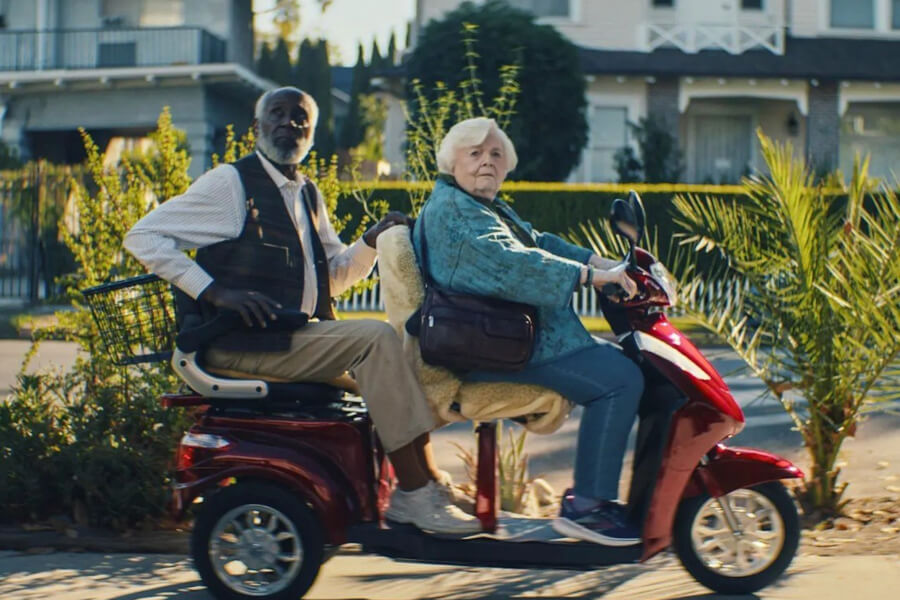When I tuned into Impeachment: American Crime Story, the PTSD kicked in immediately. Although I lived through the actual scandal and its never-ending reportage, I focused on the two main players: Bill Clinton and Monica Lewinsky, who I had no affinity for. But watching the show, suddenly I was sucked in by the late Linda Tripp.
From episode 1, I was haunted by the life-long civil servant’s intrusiveness, resentment, and determination to throw under the bus anything and anyone in order to hold on to her totally imagined importance, power, and popularity in government.
Sarah Paulson’s Emmy-worthy performance as the colleague from hell is a compilation of several of mine who, when I was new to the workforce, took advantage of my naivete, inexperience, and downright fear that if I spoke up about treatment that made me uncomfortable, it could jeopardize my job which this Bronx girl from modest means could not afford to lose.
Their behavior not only made me feel bad, but confused me. Why wouldn’t seasoned professionals in a 1980s male-dominated environment want to mentor and bring along young women to start seeing more gender equality in the boardroom?
Read More: Would You Rather Work for a Woman or a Man?
Why Women Don’t Help Other Women
In an article for Forbes, Dr. Shawn Andrews, author of The Power of Perception: Leadership, Emotional Intelligence, and the Gender Divide, explains the reason for women not helping other women: “Because of obstacles women face in their career and corporate environments, and the achievement of hard-fought success, their attitude toward other women is ‘I figured it out, you should too.’”
Many women have the attitude “I figured it out, you should too.”
Tripp was a White House employee during the first Bush’s administration and transitioned into the Clinton presidency. In the show, she explains her transfer to the office of White House counsel: “I have reason to believe that Hillary didn’t want me near the President,” inferring that the First Lady thought her husband would be attracted to her. After one lawyer she reported to committed suicide and the other resigned, Linda was sent to work in the Pentagon in the public affairs office, referred to as “Siberia,” where 23-year-old Monica also had been exiled.
Tripp lingers at the former intern’s desk, looming over her, and thinks nothing of reading through Lewinski’s datebook, flipping the pages, taking note of entries and questioning the newbie about them as though the veteran employee was entitled to an explanation.
Passive Aggression in the Office
Nowadays, that behavior would be addressed with HR, but back in the early ‘90s that wasn’t done, and even more so in my era. I wanted to be an ad agency copywriter, but upon graduating from college I couldn’t hold out financially for my dream job and took a position as the assistant in the advertising department of a then-prestigious, now-defunct department store.
Every time I tried to speak to the creative chief about a possible writing assignment I was accused of betrayal.
For such a small department, they had two creative directors—one who presided over actual creative work and an administrative one who was more of a traffic person. The latter was my boss.
Previously, there had only been one director position, and when it opened up my superior had been passed over. To appease her, management split the job into the aforementioned two categories and gave her the less glamorous one. My time there was short-lived, as I couldn’t deal with being a pawn in my supervisor’s passive/aggressive games to undermine her rival, and every time I tried to speak to the creative chief about a possible writing assignment I was accused of betrayal. When I engaged in basic co-worker chitchat, my boss grilled me about those conversations as though I were a suspect on Law & Order.
Aggressive Aggression in the Office
After I got the ad agency position I’d been coveting since college, it was anticlimactic due to the art director to whom I was assigned. She had three years on me yet, made her main job cultivating an image of superiority, like Tripp who sashayed around the mostly cubical-filled office as though it were the West Wing and she was a high-powered official.
Like Tripp, that boss was hell bent on getting back in the big time and stirring the pot until it happened.
My migraine inducing art partner, who lied shamelessly about her length of time in the business, believed she deserved not only a window office, but the C-suite; strategically befriended one of the HR professionals and used that relationship to try to get into a more high-profile group, while disparaging me for good measure—in the “Lorraine is too beneath me, too green, too…” not what she wanted, which was a more seasoned male writer. Because her career wishes were not coming true, like Tripp, she thought nothing of destroying other people’s professional reputations (I wasn’t the only one she belittled to HR) and generally making everyone’s life miserable.
Dr. Andrews says, “For a healthy relationship to be possible between women, the self-esteem and power of one must be, in the eyes of each woman, similar in weight to the self-esteem and power of the other.” I was in a no-win situation.
In my last year working full time before going freelance, my group inherited a supervisor who’d fallen out of favor with the higher-ups. Management put her in our group because our clients weren’t as glitzy as she was used to and figured she’d quit. Like Tripp, she was hell bent on getting back in the big time and until that happened she was going to stir the pot, directing all her anxieties toward me.
Andrews says: “When the competition for spots increases, women are less inclined to bring other women along.” Or worse.
Weaponizing Gossip
Just as Linda Tripp was always on the prowl for the inside scoop that would bring down a nemesis or two (or entire administration), my supervisor was always badgering colleagues for “what my story” was to weaponize the 411. I’d often return to my office to find her perusing the papers on my desk and of course, my calendar. That is, when she wasn’t trying to convince our group head that I wasn’t up to whatever task he wanted to assign to me. Luckily, he never fell for her scheming, just like the White House aides who unceremoniously hustled Tripp over to the Pentagon. My superior was eventually fired.
I had no idea though watching the show would turn into a flashback to what I thought were long-forgotten humans who drained you with their bitter agendas.
When my husband Neil and I first heard of Impeachment, we thought we’d view the tale of the Harasser in Chief and the girl in the beret through the lens of entertainment. I had no idea though that it would turn into a flashback to what I thought were long-forgotten human drains with their bitter agendas who turned pretty decent jobs into stressful dramas.
The only positive to come from this walk (actually a run, screaming) down memory lane, was reading this statement from Dr. Andrews: “Millennials and Generation Z hitting the workforce in 2020, are more proactive in helping women than older generations.” This gives me hope for my 23-year-old daughter Meg, who recently got her first full-time job. May she never work with a Linda Tripp.
Read More: In 2021, Would The Devil Still Wear Prada?
***
Lorraine Duffy Merkl is the author of the upcoming novel, The Last Single Woman in New York City, to be published in 2022 by Heliotrope Books.





















0 Comments